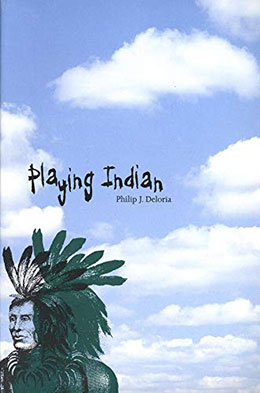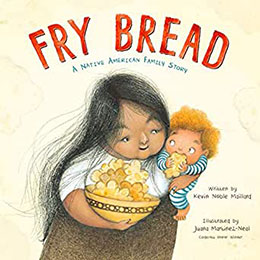Peace as Seeing the Deliberately Dismissed
“There’s really no such thing as the ‘voiceless.’ There are only the deliberately silenced, or the preferably unheard.” (Arundhati Roy)
Ellie: I am lucky to say I married a bread baker. He loves the physicality of the process. I love the warm, scrumptious result. For years now, I have savored the taste of homemade bread. Now, my two little boys run into the kitchen when they hear my spouse pulling the bin of flour out of the cupboard. They love mixing the ingredients, kneading the dough, and watching it rise through the oven window. Sharing bread with friends, family, and neighbors has become a delightful part of our days.
Bread brings people together. The ingredients in bread are so elemental. When combined with love, they nourish and sustain a people. At the center of a gathering, at the center of a culture is a foundational grain that sustains life — naan, tortilla, rice, ugali, injera, and fry bread to name a few. Food, then, is a bridge between worlds. Learning about the central food of a people, if done well, is access to the history, heritage, resourcefulness and perseverance of a cultural community. The magic of food can be an instrument of peace.
Fry Bread: A Native American Family Story by Kevin Noble Millard is a beautiful, accessible picture book story that raises visibility and challenges stereotypes of Native Americans.
Frybread is food. Frybread is shape. Frybread is sound. Frybread is color. Frybread is art.
Kevin Noble Millard brings all of the reader’s senses to attention, deepened by colorful, engaging illustrations. Then he shifts. “Frybread is history. The long walk, the stolen land. Strangers in our own world. With unknown food, we made our own recipes from what we had.”
He includes the names of hundreds of indigenous nations and communities in the U.S., helping students understand that the terms Native American, American Indian, and Indigenous Americans include many diverse cultures and peoples. There is no single story. He reminds readers, “Frybread is us. We are still here. Elder and young, friend and neighbor. We strengthen each other to learn, change and survive.”
In an interview with Sally Lodge, Kevin Noble Millard says about Frybread: “People had to make do with what little they had, and from these simple ingredients they made fry bread. It was a food that had its beginnings due to deprivation and the absence of food they were used to. And now fry bread has become a food central to the lives of most Native families — and something very celebratory.”
Teaching Fry Bread
Use the cultural iceberg idea to explore how Fry Bread brings us deeper into American Indian culture and history. Fry bread is a cultural aspect that is easy to see and access. The book opens a door to learn about other cultures beginning with something as elemental as bread. It encourages us to really see each other for who we are and recognize the unique gifts that different cultures bring to society. What is above the water in your culture? In Kevin Noble Millard’s? What is below the surface in each?
Questions for Kids
How is fry bread part of everyday life and special occasions in this book? What foods are part of special occasions that you take part in?
Do you have a favorite food in your family or culture that is special or has a special history? Who makes this special food? How did they learn to make it?
How does food help tell the history of a people? What stories have you heard about foods your family eat?
What steps does Kevin Noble Millard take to challenge stereotypes of Native Americans? What steps can you take to challenge stereotypes you encounter?
What are the words on the endpapers of the book?
Whose voices are deliberately unheard in your family? School? Community? Country? How can we hold more space for all voices to tell their unique story?
Digging Deeper
“Trauma in a people looks like culture.” (Resmaa Menakem)
 In Playing Indian, Philip J. Deloria explores the history of the symbol of Indian over the course of US history. White Americans have historically mimicked Native Americans’ clothing, tradition and ceremonies, hoping to build a legitimate insider identity while simultaneously stealing land from the native peoples. The idea of the American Indian has changed over time to suit the needs of the ruling élite. Denigrating Native Americans as savage others eventually became dismissing them as consenting to vanish, willingly riding off toward the horizon. This final image solidifies the symbol of American Indians as historic. Yet Native tribes are here, as Frybread states, “learning, changing and surviving.”
In Playing Indian, Philip J. Deloria explores the history of the symbol of Indian over the course of US history. White Americans have historically mimicked Native Americans’ clothing, tradition and ceremonies, hoping to build a legitimate insider identity while simultaneously stealing land from the native peoples. The idea of the American Indian has changed over time to suit the needs of the ruling élite. Denigrating Native Americans as savage others eventually became dismissing them as consenting to vanish, willingly riding off toward the horizon. This final image solidifies the symbol of American Indians as historic. Yet Native tribes are here, as Frybread states, “learning, changing and surviving.”
Native American tribes have been deliberately silenced and preferably unheard. Books like Frybread are important tools for peace in that they expand the awareness of hundreds of unique cultures through story. Our work of peace includes dispelling the singular and historical symbol of Indian to see and hear the varied living, breathing, and frybread-eating tribes across the land.
Novelist Chimamanda Ngozi Adichie gave a TED talk back in 2009 called “The Danger of a Single Story.” Her message is still relevant, powerful and worth watching or watching again.
Read the full interview of Kevin Noble Millard in Publishers Weekly.
_______________________________________
For each Peace-ology post, Caren and Ellie partner to learn and explore the meaning of peace by talking and listening with each other. If you’d like to share your ideas about peace, books, and children, please share your comments here, or visit our websites.

